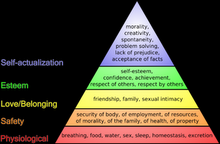
My Insights: Here are four challenges and great themes in the 21st century.
- Integration of out international perspectives
- Translating research into technological innovation
- Create partnerships and alliances across industries
- Demonstrate value and wealth through entrepreneurial ideas.
My initial thoughts to these four challenges is that they are redundant and simplistic but unfortunately these themes are still not a reality. It's easier said than done to envision a world who already follows all four of these ideals. We, as the United States are not yet integrating our technological advances, knowledge, resources and wealth with those in the developing nations (as we are a capitalistic nation) but we must integrate with each other. We must continue to translate new emerging ideas into technological advances. Yesterday, I read about the realization of providing HIV tests to those in the ER, in Los Angeles County, and providing test results to patients in a one hour turn-around time. The problem stated was that many people do not know they are carrying the HIV virus and for up to 10 years on average, it goes undiagnosed (according to NPR). Those who do take the HIV tests, have a tendency to not return after the two-week wait period and show up for the in-person deliverance of results. In other words, the waiting period is lengthy and the results are only given when patients show up in person, which is rather daunting to most (according to wsj.com). Anyways, translating the idea of awareness of HIV into technology is such as amazing idea for two reasons:
- Public health officials hope of improving health care delivered to those with HIV because an earlier diagnoses can help in delivering accurate treatment of HIV patients who are accessing basic and other services, and
- Reducing the number of incidence cases appearing because the assumption is that when people know they are HIV positive, they will take precautions to reduce the spread through sexually protected scenarios.
Graphical References: With rapid increases in biomedical sciences, millions of people living in developing countries are in situations of dire poverty with limited access to clean water sources, food, safety, homes and even basic health care. Why cannot the developed countries devote more resources with the potential for science and technology to merge to improve living conditions, control disease and improve lives.
Inspirational Quotes: "Discovery is seeing what everyone else has seen and thinking what no one else has thought." - Albert Szent-Gyorgi





















